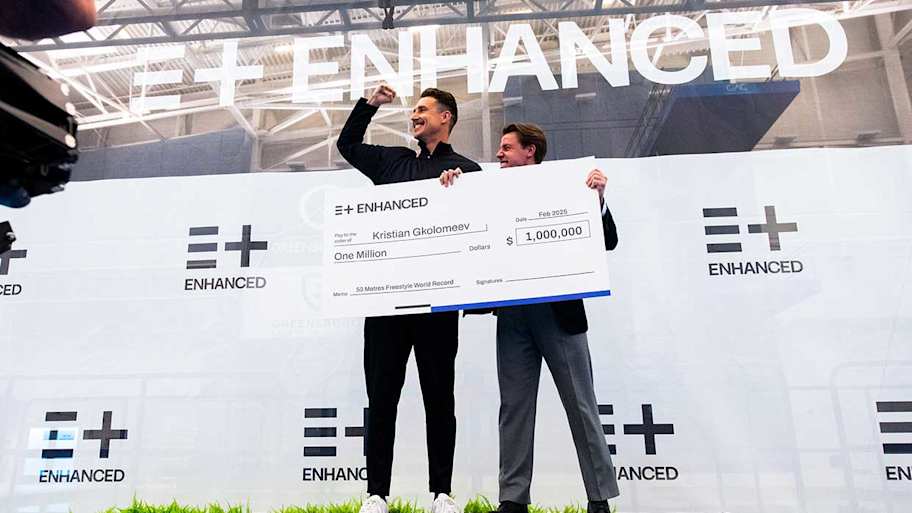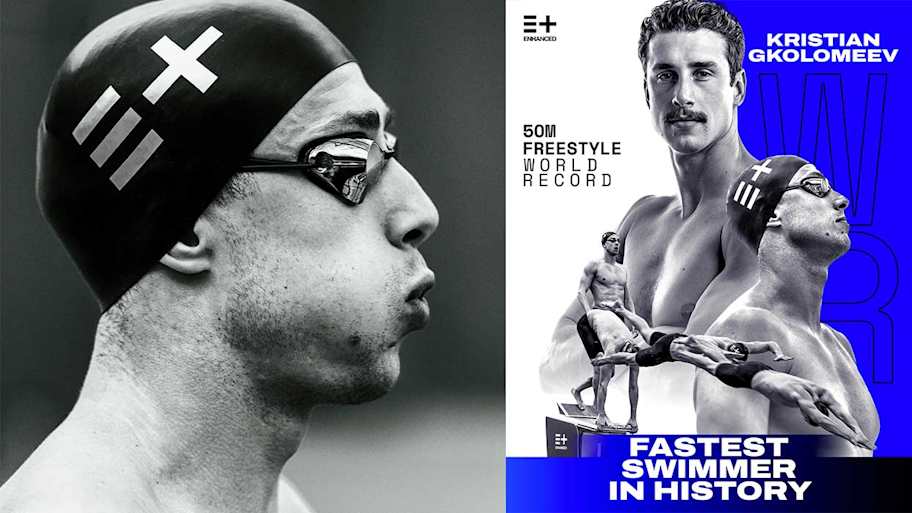The Enhanced Games: Rewriting the Rules of Sport, Science, and Human Potential

When Aron D’Souza speaks, he doesn’t sound like a typical sports executive. The president of the Enhanced Games is building more than an event – he’s reengineering the way we define athletic achievement, aging, and human potential.
“The two largest sponsors of sport in the U.K. are alcohol and gambling,” he points out. “We accept those vices, but we’ve drawn the line at performance enhancement?”
It’s a line D’Souza is challenging head-on. His Enhanced Games openly welcomes athletes who use scientifically guided, medically supervised enhancement protocols. To him, it’s not cheating, it’s evolution.
Beyond the Needle: A Paradigm Shift in Performance
To understand the Enhanced Games is to grasp that performance enhancement isn’t limited to steroids and needles. “Enhancement is a whole-of-life upgrade,” D’Souza says. “It’s pharmacological, yes. But it’s also environmental, nutritional, and deeply technological.”
He envisions a future where elite athletes, and everyday people, optimize their environments down to the last variable. “What if your hotel room-controlled humidity, temperature, and oxygen levels to maximize recovery? What if sleep wasn’t a gamble, but a weapon?”
It’s not just fantasy. “I’ve been thinking about building an Enhanced Hotel,” he reveals. “It would focus entirely on optimizing human performance – perfect soundproofing, altitude modulation, meal plans backed by genomics. That’s the next frontier.”
The Testosterone Crisis: A Generational Emergency
Central to D’Souza’s crusade is reversing a troubling trend: the steady decline in testosterone levels among men. From 1999 to 2016, average testosterone levels in American men aged 15–39 fell by nearly 25%, from 605 ng/dL to 451 ng/dL. These aren’t just numbers – they’re symptoms of a deeper public health problem.
“This decline affects everything – mental clarity, strength, fertility, resilience,” he says. “We’re not just seeing weaker athletes. We’re seeing weaker generations.”
He’s not wrong. Low testosterone is linked to depression, chronic fatigue, muscle wasting, and even early mortality. According to research, testosterone deficiency may now affect up to 1 in 5 men under 40. Yet access to medically supervised treatment remains gated behind wealth, location, and stigma.
“Right now, you have to be a billionaire to get access to elite protocols. Our mission is to democratize that.”

From the Gym to the World Stage
The Enhanced Games were born out of both philosophical inquiry and real-world observation. The initial idea came from Professor Julian Savulescu, an Oxford bioethicist who proposed a concept for an “Enhanced Olympics” more than two decades ago. It lay dormant until D’Souza, inspired by conversations with powerlifters in Miami and influencer culture, realized the time had come.
“The idea crystallized over Christmas in 2022,” he recalls. “Every year, I write down what I’m going to build. That year, it was the Enhanced Games.”
By June 2023, the concept had gone viral. With a growing team that includes scientists, physicians, ethicists, and executives from Nike, the IOC, and major tech firms, the Enhanced Games now prepare for their first competition in Las Vegas on Memorial Day weekend 2026.
A Safer, Smarter Alternative
One of D’Souza’s strongest arguments lies in harm reduction. “Most men who want to enhance are doing it dangerously,” he says. “They’re buying underground compounds, injecting unsafely, and taking unvetted advice.”
A friend of the organization who researches supply chain adulteration estimates that 85% of street steroids are contaminated, mislabeled, or ineffective. “The current system isn’t just failing – it’s punishing people for wanting to improve themselves,” D’Souza adds.
In contrast, the Enhanced Games are building a pharmaceutical-grade ecosystem that emphasizes safety, transparency, and clinical oversight. “Our athletes undergo regular blood work, telehealth screenings, and use verified compounds. We’re pioneering trust.”
The Overton Window Is Shifting
D’Souza is well aware that what he’s proposing was once considered radical. But in his view, the “Overton Window”. the range of ideas society finds acceptable, is rapidly shifting.
“Look at Ozempic and GLP-1 drugs. A decade ago, people laughed at weight-loss injections. Now 30% of Americans would use them. And it’s changed the economy – airlines are reporting higher profits; clothing companies are adjusting inventory.”
He believes performance medicine is next. “This is the Uber moment for enhancement. It’s not on the fringe anymore. It’s coming mainstream.”
From Sprinters to CEOs: A New Customer Base
While athletes remain the Enhanced Games’ focus, the long game is broader. “This isn’t just about breaking records. It’s about redefining what it means to live well,” D’Souza says.
Executives, entrepreneurs, and high performers are flocking to enhancement clinics nationwide. The demand for testosterone replacement, peptide therapies, and recovery technology is booming.
“We’re seeing a cultural shift. Men don’t want to age quietly. They want to fight entropy. They want to optimize.”
Why Records Still Matter
Despite all the talk of longevity and biotech, D’Souza’s eyes light up most when discussing speed.
“The goal is to break Usain Bolt’s 100m record at our first Games,” he says plainly. “And yes, we have someone ready.”
That moment would symbolize more than just athletic supremacy. “It would be the moment the world saw what’s possible when you stop punishing ambition and start engineering it.”
A Final Vision: Age Reimagined
Perhaps the boldest claim D’Souza makes is his vision for aging. “What if a 65-year-old could break a world record? Not a master’s category, but a true world record?”
It’s not a rhetorical question. “If we can redefine aging from decline to dominance, we’ll change everything – retirement policy, health care, how we see ourselves.”
He smiles. “Tom Brady ran a slower 40-yard dash at the NFL Combine than he did at 43. What if enhancement had been part of his rookie contract?”
This article was originally published on www.si.com/everyday-athlete as The Enhanced Games: Rewriting the Rules of Sport, Science, and Human Potential .
Post a Comment